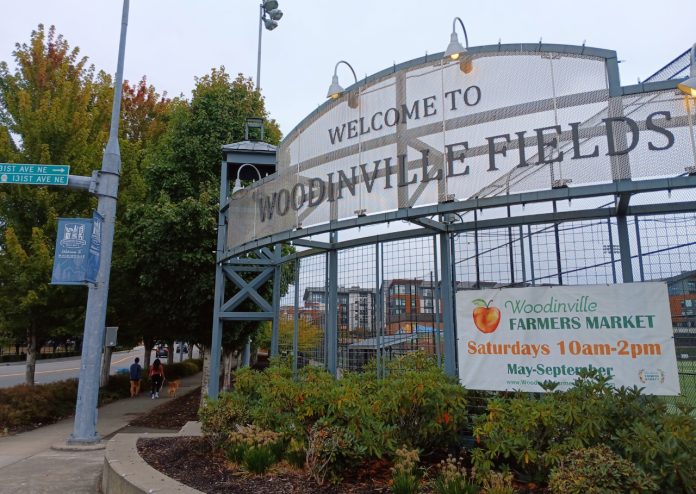
October’s arrival means campaign season is officially kicking into high gear, with local candidates ramping up door knocking and cranking out yard signs to activate voters ahead of the November 4 general election. In the wine-tasting mecca of Woodinville, 20 miles northeast of Seattle, this year’s elections have taken on a very different tenor, with a one-man political action committee (PAC) spending a wave of cash in the hopes of pushing city government away from its current trajectory.
A typical city council race in Woodinville, home to 14,000 residents, usually sees around 3,000 to 4,000 voters weighing in. In 2023, the average amount spent by successful council candidates within their own campaigns was less than $10,000. When it comes to outside spending, the average amount groups have spent to support candidates in Woodinville over the last few election cycles has been in the hundreds of dollars.
Enter Jeff Lyon.
Lyon is an engineering manager at Coinbase, a cryptocurrency exchange company, who moved to Woodinville in 2018. He set up a PAC last year that he called Democratic Woodinville, billing itself as an “independent, non-partisan committee working to ensure that Woodinville’s leaders answer only to the community and not political parties, outside groups, or special interests.” But that PAC has been funded almost entirely with Lyon’s own dollars — so far in 2025, Lyon has donated more than $175,000 to the PAC, according to the state Public Disclosure Commission.
Over the last two years, the PAC has spent nearly $200,000, on top of going into debts worth more than $137,000. In its entire existence, the PAC has reported only two donors who were not Lyon.
Through late September, Democratic Woodinville had reported spending nearly $80,000 on behalf of council candidates. The lion’s share of the money, so to speak, has gone to support incumbent Councilmember Rachel Best-Campbell, the most outspoken voice on the council when it comes to extracting concessions from developers seeking to build in Woodinville. Earlier this year, Best-Campbell proposed a full development moratorium in the city until a baseline affordability requirement could be put in place on all housing projects, a proposal that was ultimately shot down in favor of implementing a blanket 10% mandate on projects in downtown.
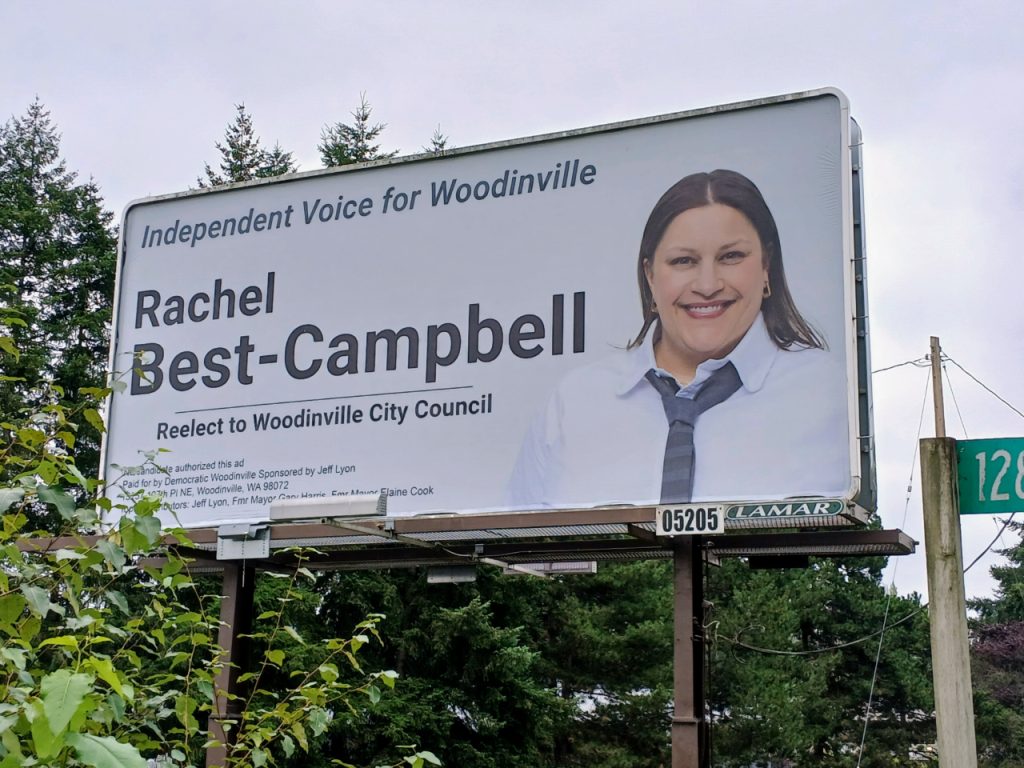
As in many other cities around the Seattle region, the issue of housing growth and the pace of development has taken center stage in Woodinville’s political landscape in recent years. The transformation of the city’s downtown from a more car-oriented shopping district into a dense neighborhood with trendy restaurants and hundreds of apartments has caused some Woodinville residents to seek to tap the brakes on the city’s growth.
Nonetheless, the current council majority has taken a different approach, approaching decision points with an eye toward leveraging Woodinville’s position as a desirable, growing place — a fact that has put it at odds with those pushing to slow growth.
Few development projects have been as prominent as the one that will replace Molbak’s, the beloved garden store that closed in early 2024 after operating in the city for decades. The 19-acre property in the middle of Downtown Woodinville was originally set to become the Gardens District, a phased development that would come with 400,000 square feet of retail space and more than 1,200 apartments, with a restored garden center at its heart. But that project fell apart in late 2023, due to high construction costs and interest rates.
Now Green Partners, the property owner, has retooled its proposal, and is instead looking at a development with 1,300 apartments and a hotel, but less retail space. Such a proposal would require Woodinville to relax its existing standards about having residential uses on the ground floor within downtown.
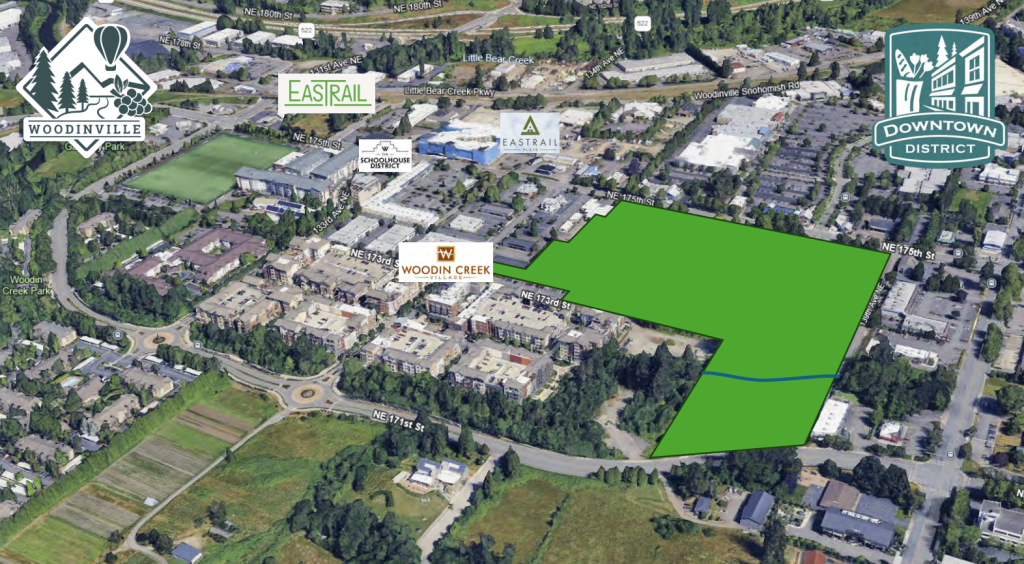
The next iteration of the Woodinville City Council will likely approve a development agreement for the Molbak’s site, with the issue of a minimum level of affordability a major sticking point. Democratic Woodinville had been advocating for a 26% affordability requirement — a level that likely wouldn’t allow any large housing projects in the city to pencil out as feasible — but has since removed that language from its website. Lyon reiterated the 26% affordability requirement in his Urbanist questionnaire submitted in May.
Best-Campbell has also directly clashed with the rest of her colleagues on the council, receiving a vote of censure in both 2023 and 2024 for her behavior as an elected official. In the 2023 incident, Best-Campbell traveled to Washington, D.C. to advocate with federal officials for the railbanking of the future Eastrail corridor through Woodinville, despite the fact that the council had authorized a separate delegation to represent the city. In 2024, she was censured for telling Woodinville Mayor Mike Millman to “shut up” during a council meeting.
The Best-Campbell campaign did not respond to a request to sit down for an interview with The Urbanist.
This spring, Lyon filed himself to run for a council seat, challenging one-term incumbent Michelle Evans. Lyon’s website touts “responsible growth” and the idea of putting Woodinville residents’ interest ahead of “developer profits” — with his campaign adding its own billboards to the ones touting Best-Campbell around the city. To date, Evans has been outspent by Lyon by more than eight times in direct campaign spending, with no other individuals reported as having donated to his campaign.
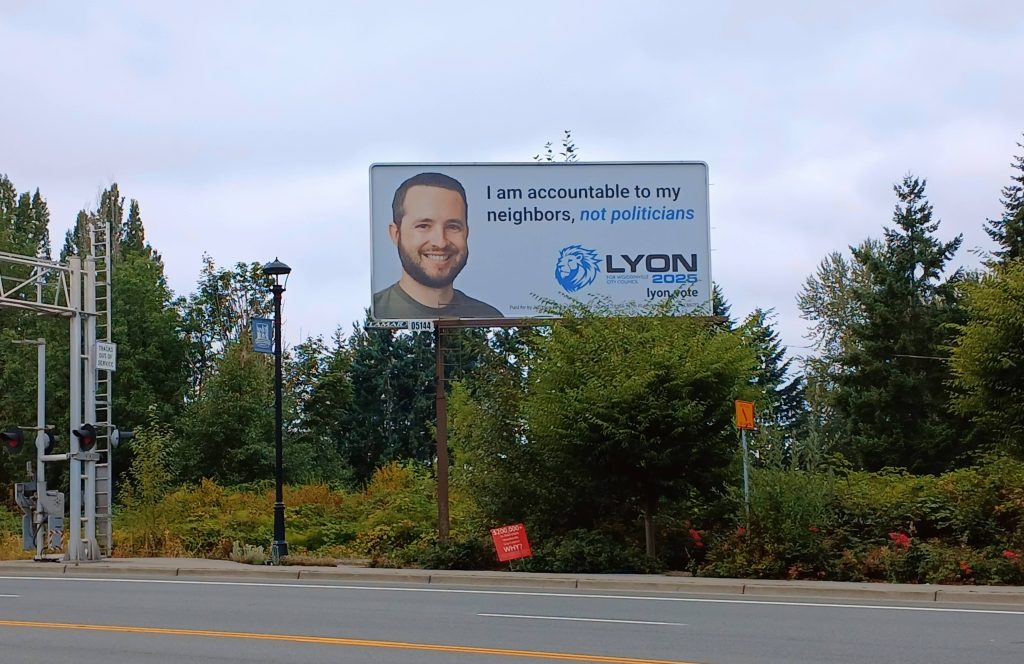
Lyon declined to sit down for an interview with The Urbanist, but did respond to questions via email.
“I began engaging with the Woodinville City Council in 2023 following the closure of Molbak’s and loss of the Garden District project. It was the beginning of the Council’s ambitious and inflexible push to spend, rezone, and rapidly develop Downtown in support of a new Eastrail district,” Lyon wrote in explaining his decision to launch the PAC. “This plan will displace small businesses, introduce high-rise towers, create congestion, and require unprecedented increases in property taxes despite partial funding from state and federal grants.”
Despite the significant amount of cash already put into Woodinville’s races, the push looks poised to come up short. In August’s primary election, incumbents Sarah Arndt and James Randolph both exceeded 60% of the vote, despite PAC support for their opponents. Meanwhile, Best-Campbell only received around 26% of the vote. The two candidates who had been directly endorsed by Democratic Woodinville, Susan Milke and Brandon Finley, both lost. The Urbanist Elections Committee (of which I’m one of 14 members) endorsed Arndt in the primary, but deferred to the general election for the other races.
“I was very encouraged after the primary results, because it looks like those who are spending this huge amount of money here in Woodinville are not getting the traction that they wanted. It’s not having the impact that they hoped,” Councilmember Sarah Arndt told The Urbanist. “All of this money is coming in, and it’s coming in under a guise of democratic principles, but it’s really an anti-growth platform that’s being held across multiple candidates.”
The backlash to the PAC spending is immediately apparent walking around Woodinville. Yard signs framing Lyon as a “cryptobro” have popped up around the city, along with signs calling out the high amount of PAC spending.
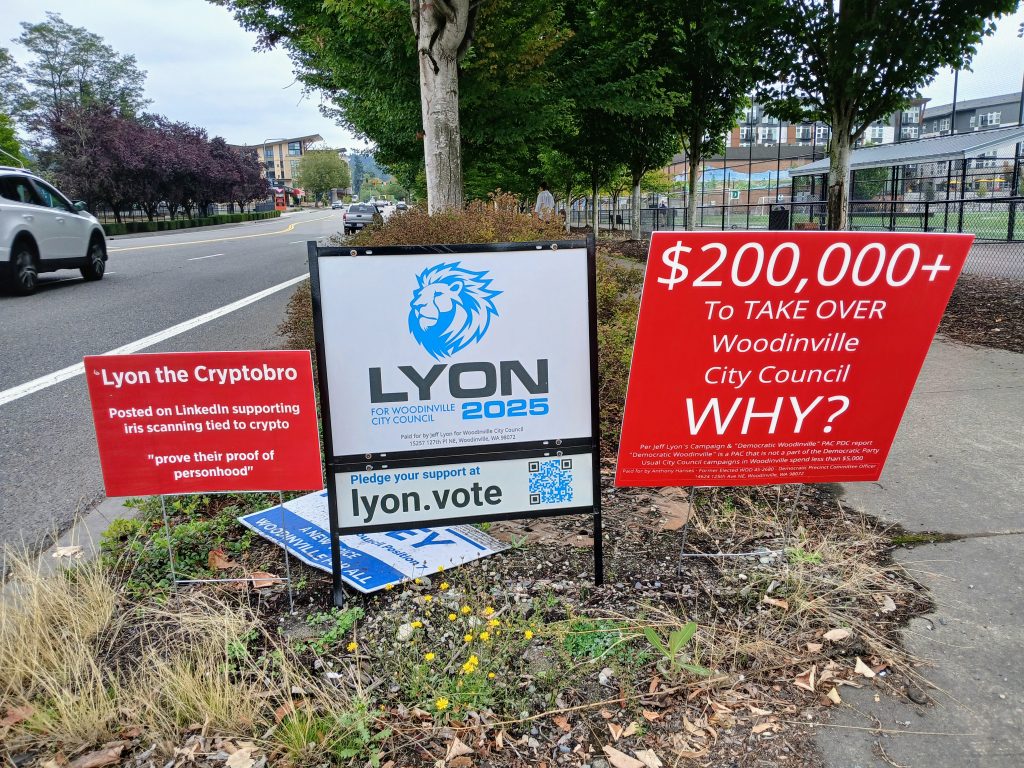
“People in Woodinville are smart. We have smart voters,” Councilmember James Randolph told The Urbanist. “We have people that are highly intelligent, intellectual that are going to actually read and know the difference and what’s being offered from the turf candidates and the people who have actually been here over the last five years, doing the work, putting in work, talking to people, going door to door, making sure people understand our issues, creating what we call community conversations, doing engagement with our community, trying to be open and transparent.”
Lyon framed the purpuse of his PAC as motivated by a desire to see Woodinville set an “all-time voter participation record.” He said that less than 40% of the PAC’s spending is geared at promoting specific candidates.
“All three incumbents did exceptionally well. I see this as proof that spending does not buy elections. It does level the field, create awareness, and increase participation,” Lyon said in an email. “Our Primary turnout was 40%. That’s six points higher than King County overall and two points higher than Woodinville’s participation in the 2023 General Election. I am looking forward to hitting 55% in November. With record turnout, we can be confident that the election results truly reflect our community’s intent.”
But Evans, challenging Lyon directly in November, portrayed his attempts to advance policy through a PAC as being at odds with being able to collaborate with his colleagues on the council, if elected.
“It’s one seat out of seven, so you still need to work with a lot of other people and across the community to make things happen. And I find it interesting that he’s never actually spoken directly to me. He just made assumptions and has made assertions about me that are not true, and I’m not sure exactly where this came from, but I guess if somebody wants to spend this much money, I would question what their fiscal discipline would be, to make hard choices and stay within the city’s operating budget, because there’s a lot of great projects out there, but we also have to be realistic and stay within our budget and make hard choices and prioritize.”
Which candidates are able to win the approval of voters next month is not only set to make a big difference in the future of Woodinville, it’s also poised to be a major referendum on the issue of money in local politics, with potential impacts well outside the city’s limits.
Ryan Packer has been writing for The Urbanist since 2015, and currently reports full-time as Contributing Editor. Their beats are transportation, land use, public space, traffic safety, and obscure community meetings. Packer has also reported for other regional outlets including BikePortland, Seattle Met, and PubliCola. They live in the Capitol Hill neighborhood of Seattle.

